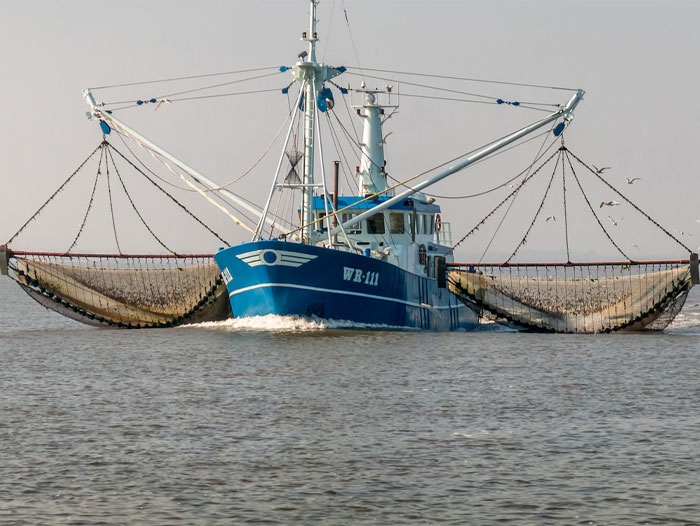Supply Chain Traceability Gaps Leave Global Seafood Giants at Risk Amid Mounting Investor Attention
January 2, 2025 | 5 min to read
Investors managing US$6.5 trillion engage with seven major seafood companies to enhance supply chain traceability amid growing regulatory and reputational risks linked to transparency. Although all companies acknowledge the risks, none have published plans for comprehensive systems, exposing shareholders to potential issues. Currently, only Charoen Pokphand Foods and Thai Union have strong commitments. As the initiative progresses into its second year, increased technical support aims to foster improvements in traceability and risk management.

US$6.5 trillion investors engage with seven major seafood companies to improve traceability in supply chains in response to material regulatory, reputational and operational risks linked to a lack of transparency.
- All seven companies engaged acknowledge the material business risks of insufficient supply chain transparency; but none have published plans to implement robust traceability systems.
- Only two currently have traceability commitments covering all operations, and none presently disclose progress against these commitments.
- While challenges to implementing full-chain, digital, and interoperable traceability systems exist, active participation from all seven companies sets a promising precedent for potential improvements as the engagement continues into its second year.
The FAIRR Initiative published findings from a first-of-its-kind investor engagement aimed at ensuring seafood companies can trace the origin of all wild-caught and farmed seafood they sell and all aquaculture feed ingredients they procure.
Supported by 35 investors representing US$6.5 trillion in combined assets, including Nomura Asset Management and DNB Asset Management, the engagement seeks to address material business risks posed by insufficient supply chain transparency at seven* of the world’s largest publicly listed seafood companies**. These companies supply a significant proportion of the world’s seafood, selling to leading brands and retailers around the world.
The engagement is led by FAIRR, an investor network backed by investors representing US$75 trillion of assets under management, and is supported by World Wildlife Fund-US (WWF-US), UNEP FI’s Sustainable Blue Economy Finance Initiative, the World Benchmarking Alliance (WBA), and Planet Tracker.
A report revealing findings from the first year of this ongoing engagement shows that despite all seven companies acknowledging the growing regulatory, reputational and operational risks linked to a lack of supply chain transparency, none have published plans to implement full-chain, digital and interoperable traceability systems, exposing their shareholders to these risks.
To date, just two of the seven companies – Charoen Pokphand Foods and Thai Union – have established relatively strong, group-wide traceability commitments covering all seafood products for human consumption, and feed for farmed fish. The other five companies either do not yet have a traceability commitment or only partial traceability commitments covering certain operations and/or species. These results form the baseline against which the annual progress of this investor engagement will be measured in coming years.
Despite growth in the proportion of seafood certified by sustainability standards, consumers still can’t be certain the fish they eat is sustainably sourced. Opaque supply chains obscure links between some frequently consumed seafood products and real environmental and social issues, such as human rights violations, habitat destruction, and overfishing.
Globally seafood accounts for more global trade value than beef, pork and poultry combined. But a lack of transparency and traceability helps hide illegal, unreported, and unregulated (IUU) fishing, which comprises an estimated 20% of global wild-caught seafood, undermines the sustainability of fish stocks, and costs the global economy between US$15 billion and $36 billion annually.
Regulators are waking up to these risks – with a growing pool of laws requiring improved supply chain traceability coming into force in major seafood markets. For example, the Food Safety Modernization Act (FSMA) in the U.S. and the Fishery Products Distribution Act in Japan highlight the need for traceable supply chains that allow companies to demonstrate the safety, sustainability, and legality of their products.
Transparency will also support future EU Corporate Sustainability Reporting Directive (CSRD) disclosures, as well as voluntary frameworks including the Taskforce for Nature-related Financial Disclosures (TNFD). Traceability has become a must-have capability for businesses sourcing from global seafood value chains.
During its first year, this engagement established a series of traceability asks that, when achieved, will enable companies and investors to monitor and manage risks while unlocking sustainable opportunities. These asks include:
- Setting time-bound commitments to implement full-chain traceability systems covering all operations;
- Demonstrating sufficient ambition in the scope, depth and breadth of their traceability systems, in line with leading practice standards such as the Global Dialogue on Seafood Traceability (GDST); and
- Disclosing how they will deliver on their commitments, including regular progress reporting.
The first phase of the seafood traceability engagement revealed promising levels of corporate engagement. As the initiative moves into Phase two in 2025 – and is reopened for additional investor signatories – FAIRR, its partners, and participating investors will continue to engage these companies, and increase their focus on providing technical support to drive measurable progress towards robust supply chain traceability.
About FAIRR
The FAIRR Initiative is a collaborative investor network, founded by Jeremy Coller, with a membership of $75 trillion in collective assets of support. FAIRR works with institutional investors to define the material ESG issues linked to intensive livestock and fish farming systems and provide them with the tools necessary to integrate this information into their asset stewardship and investment decisions. This includes the Coller FAIRR Index, the world’s first comprehensive assessment of the largest global animal protein companies on environmental, social and governance issues. Visit www.fairr.org and follow @FAIRRInitiative.
